OCOP program supports Nghe An specialties
(Baonghean) - The "One Commune One Product" program approved by the Government for the period 2018 - 2020 and OCOP Nghe An has just been approved with a budget of 120 billion VND, which will be an opportunity for many specialty products of Nghe An to take off in the coming time if there are appropriate methods and steps.
SPECIALTY IN DIFFICULTY
In recent years, Kim Lien commune (Nam Dan) has expanded the area of lotus cultivation in swampy areas and ineffective deep-lying fields. In addition to the purpose of creating a natural landscape typical of Uncle Ho's hometown - Lang Sen, the lotus growers here also aim to process valuable products from lotus plants.
In 2018, Bac's Sen Cooperative was established with 7 members, its main business is planting, caring for and supplying lotus varieties; deep processing of lotus products, including: Lotus tea (lotus flower tea, lotus leaf tea...), seed products: fresh lotus seeds, dried lotus seeds, lotus seed milk; lotus kimchi, salted lotus root; lotus flavor...
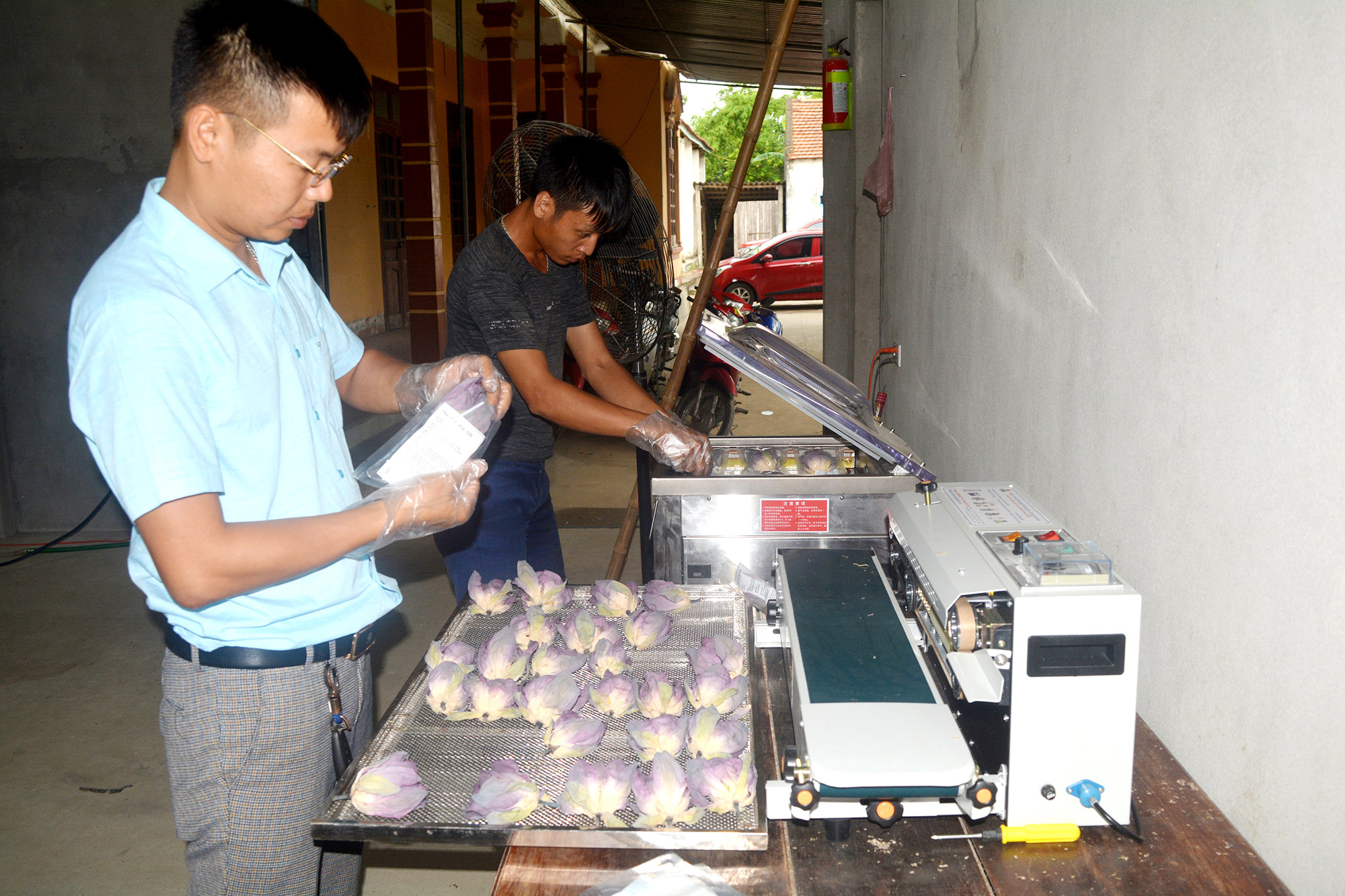 |
| Lotus tea packaging for tourists. |
Mr. Phan Kim Tien, a member of the Bac Sen Cooperative, said: “Currently, there are 5 key lotus products of the Cooperative selected to participate in the OCOP Program. Of which, 2 products are being developed for export: lotus kimchi and lotus tea.”
Bac Village Lotus Cooperative has invested in a system of machinery for deep processing of lotus products: dryers, steamers, incubators, packaging machines, vacuum machines... All lotus products are beautifully packaged and fully labeled. Currently, lotus products are available in many restaurants, hotels and supermarkets.
Although in recent times, lotus products of the Bac Village Lotus Cooperative have been positively received by the market. However, the products of the Cooperative are still fragmented and small in nature, not enough to meet the market demand.
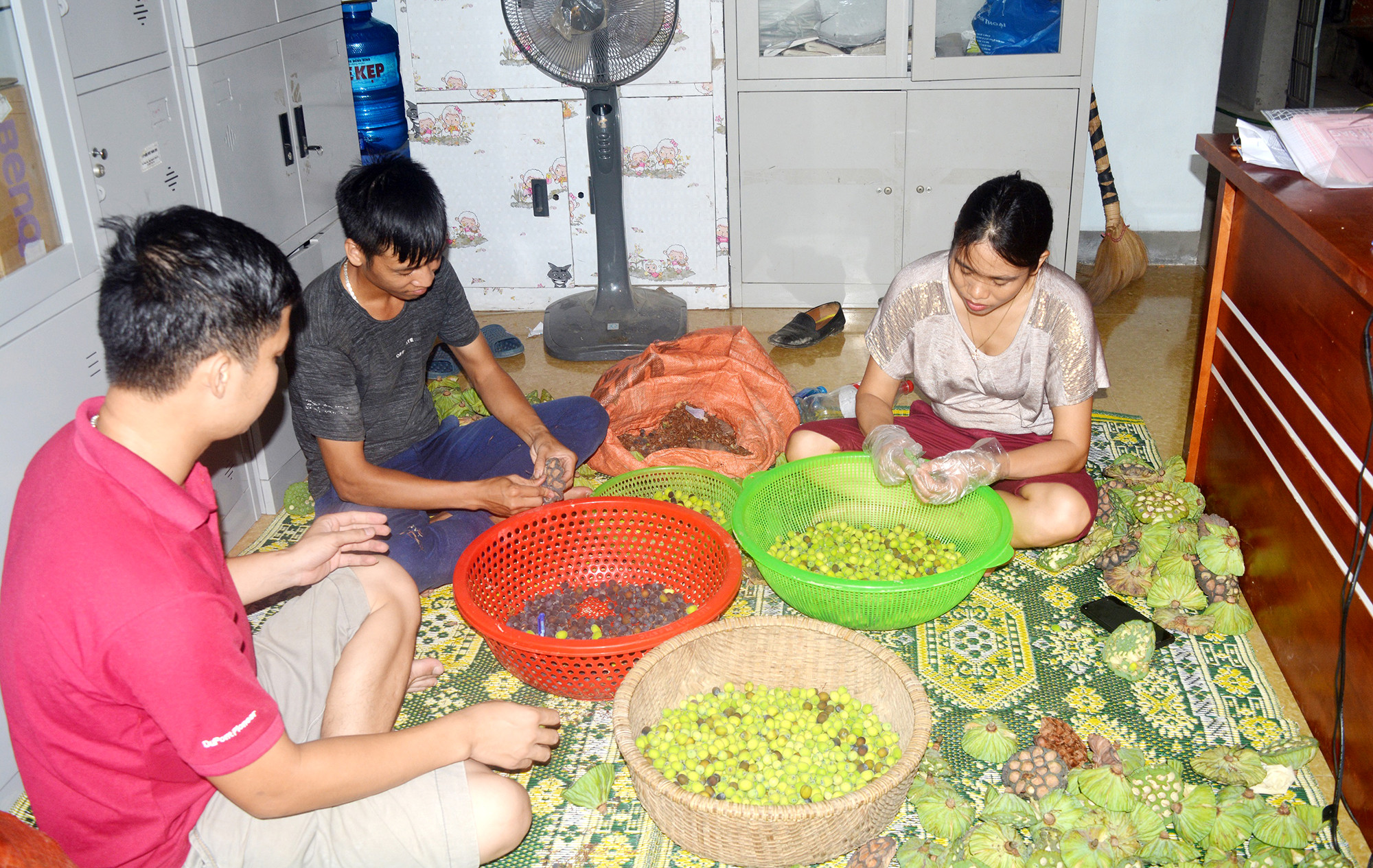 |
| Separating fresh lotus seeds, a step in lotus processing. |
The reason is the lack of input materials. Currently, the lotus area in Kim Lien is very modest, to have raw materials for processing, the Cooperative must cooperate with households to convert ineffective rice fields to grow lotus. The Cooperative supports seeds, fertilization techniques and consumes products, but this connection is unstable and unsustainable, so processing lotus products on a large scale is very difficult.
Besides, there is the problem of capital to invest in production lines, machinery, modern and synchronous equipment to deeply process lotus products; the problem of building a brand for the product also faces many difficulties. Therefore, currently, the Cooperative is producing on a small scale, consuming through acquaintances without any systematic investment in advertising, introducing and promoting trade for lotus products from Uncle Ho's homeland to reach far and wide.
Selected as one of the local key products participating in the "One Commune One Product" Program, Nam Anh cassava and turmeric starch products (Nam Dan) have invested in machinery systems to improve product quality, ensuring food safety criteria.
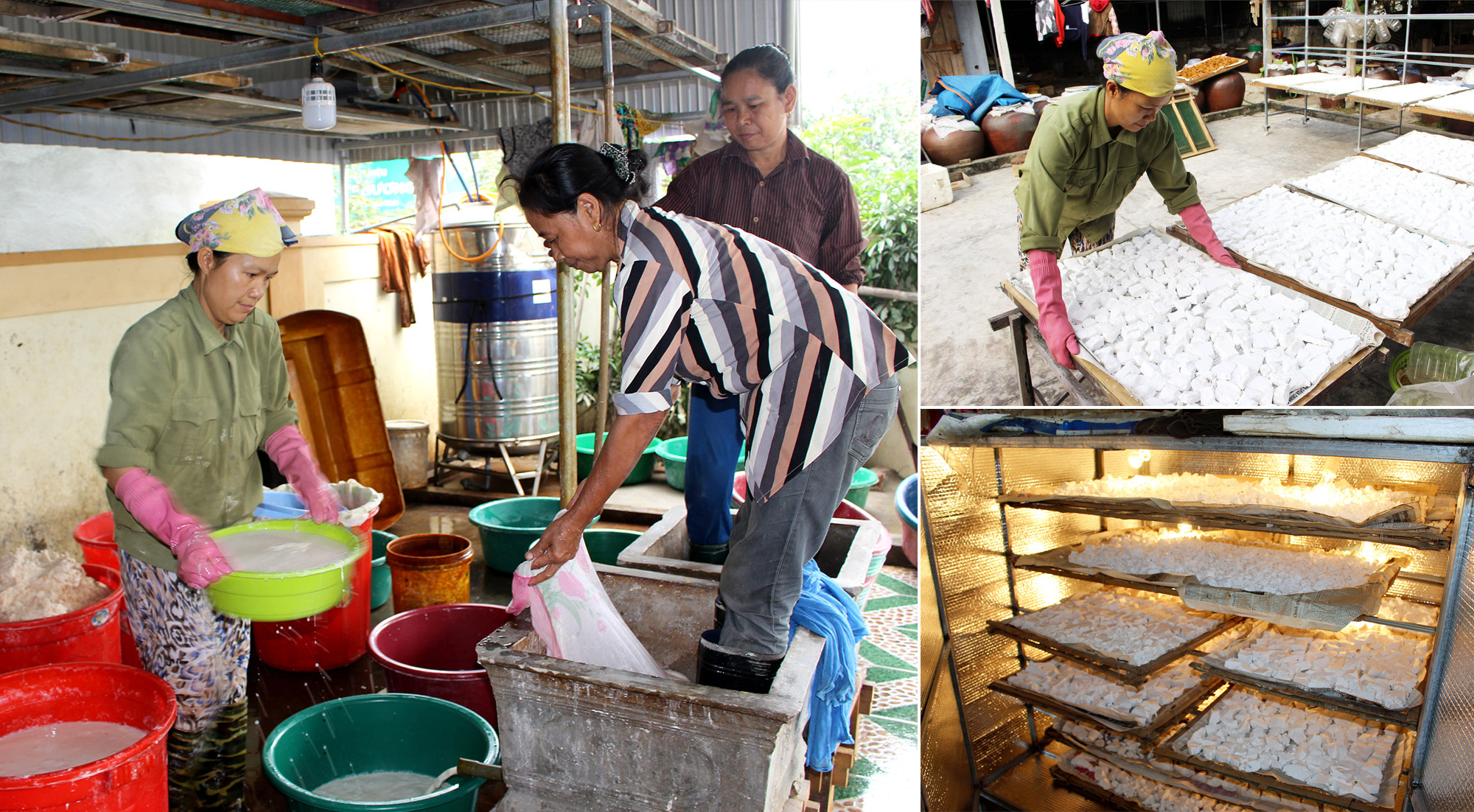 |
| Production of tapioca starch in Nam Anh, Nam Dan. Photo: Huy Thu |
Mr. Ho Viet Sy - Chairman of Nam Anh Commune People's Committee said: "Recently, with the support from the Project "Diversifying livelihoods based on heritage in agricultural and fishing villages" of JICA, 15 households participating in Nam Anh cassava starch and turmeric starch cooperative have innovated their production thinking, creating standard cassava starch products, creating momentum to improve quality, build and attach stars to cassava starch products to reach the export market".
However, the current difficulty of cassava products is the problem of promoting, advertising and introducing products, finding stable output in the market; the problem of competing with similar products in other localities such as Hanoi, Da Nang, Binh Dinh... so Nam Dan products have not been able to "take off".
Similarly, Thanh Chuong black candied fruit products, although already branded, granted trademark and intellectual property protection certificates, and quality announcements, are available in supermarkets and food chains in the country.
However, according to Mr. Nguyen Huu Hieu - Head of Technical Department, Gia Lam Vegetable and Fruit Experimental Research Center, Vegetable and Fruit Research Institute, Head of the Project "Processing and preserving Thanh Chuong black canarium", the biggest difficulty in building black canarium into a typical commodity product associated with the OCOP Program is the problem of unstable and unsustainable input materials.
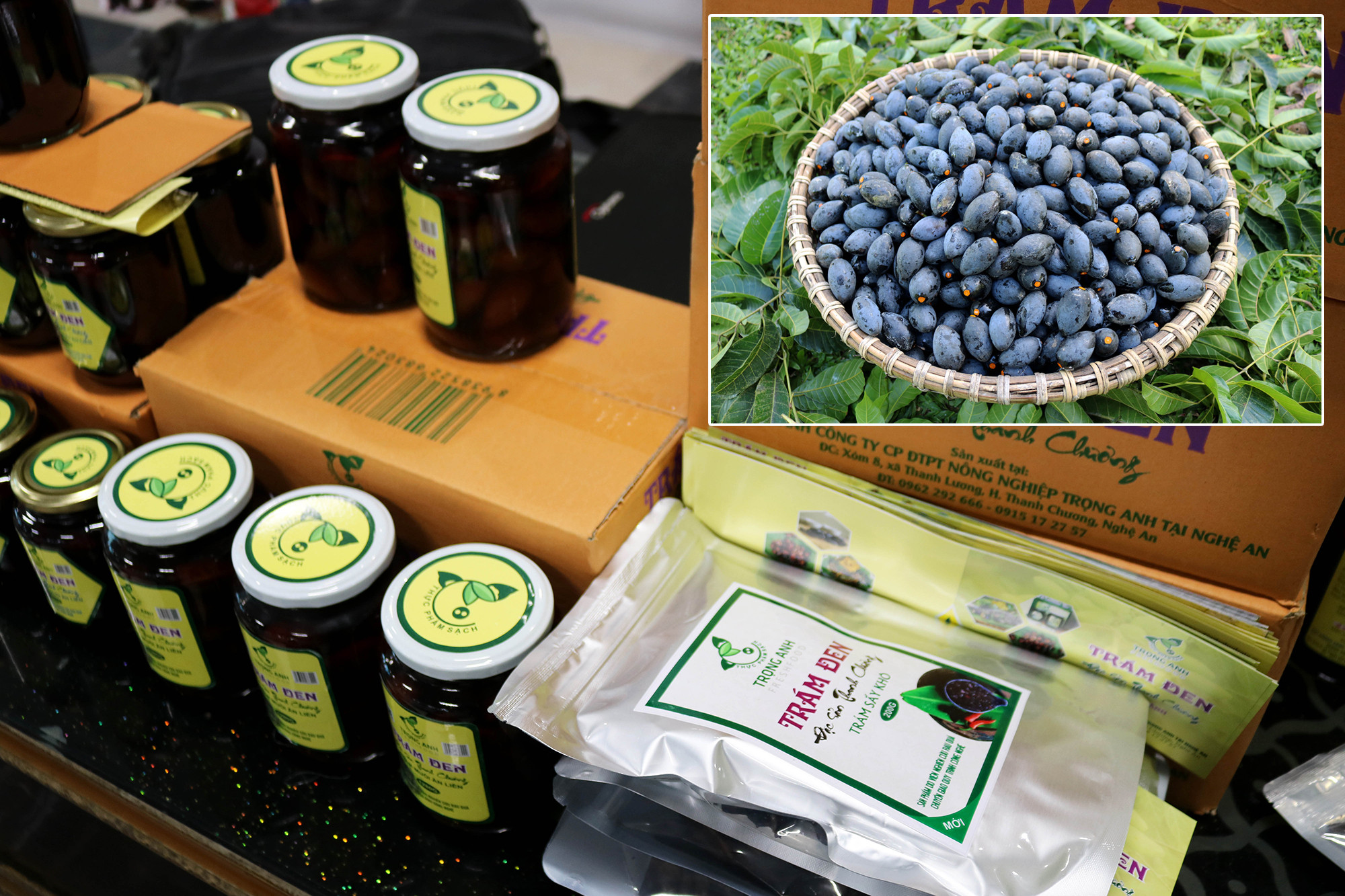 |
| Thanh Chuong black plum. Photo: Huy Thu |
Besides agricultural products, handicraft products are also a strength of Nghe An. In which, rattan and bamboo weaving is a typical example.
However, when choosing rattan and bamboo products to participate in the OCOP Program, besides the biggest advantage of this being a traditional profession, taking advantage of the local labor force, the biggest limitation is the issue of skills, grasping techniques, technology, and new product designs of rural workers to meet the strict requirements of the export market is quite difficult.
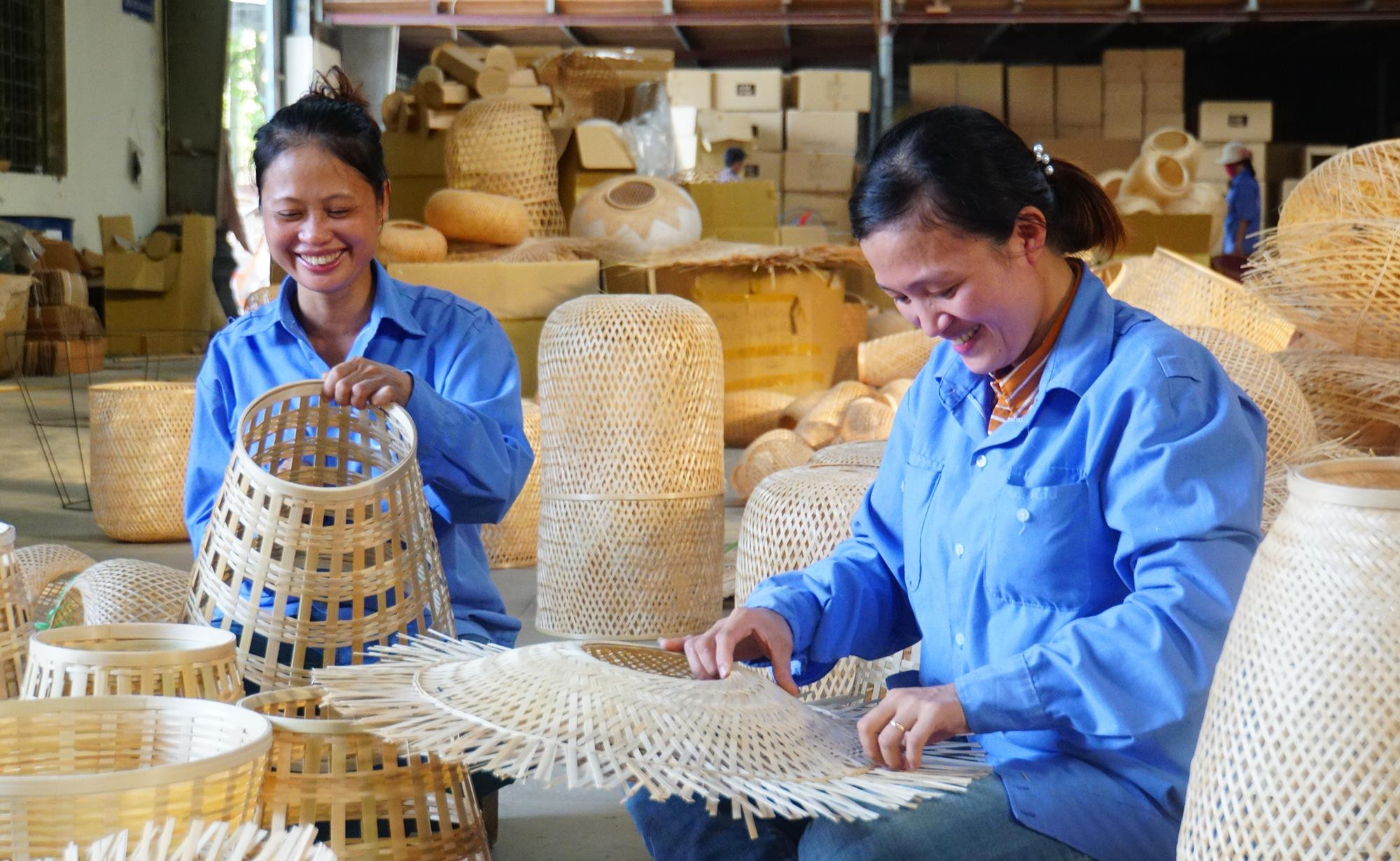 |
| Production of bamboo and rattan products. Photo: Document |
Ms. Tran Thi Lai - Head of the Bamboo and Rattan Weaving Village in Hamlet 1, Quynh Dien Commune, Quynh Luu District shared: In 2005, the Bamboo and Rattan Weaving Village in Hamlet 1 was recognized as a provincial-level craft village by the Provincial People's Committee. However, this craft is showing signs of fading away.
"ASK STAR" FOR PRODUCTS
In recent times, through programs and projects, the development of commodity products from agricultural products, traditional products and specialties has received attention from the people and the government.
Many districts have invested funds to develop products such as: Anh Son district supports the building of a certified brand for gay tea, Thai Hoa town supports the building of a collective brand for turmeric starch; Nam Cuong molasses processing; Tan Ky district supports the building and development of goat brands and products; Hoang Mai town supports the development of turmeric starch and mackerel products; Con Cuong district builds a certified brand for leaf yeast wine, a collective brand for oranges, rattan and bamboo weaving villages...
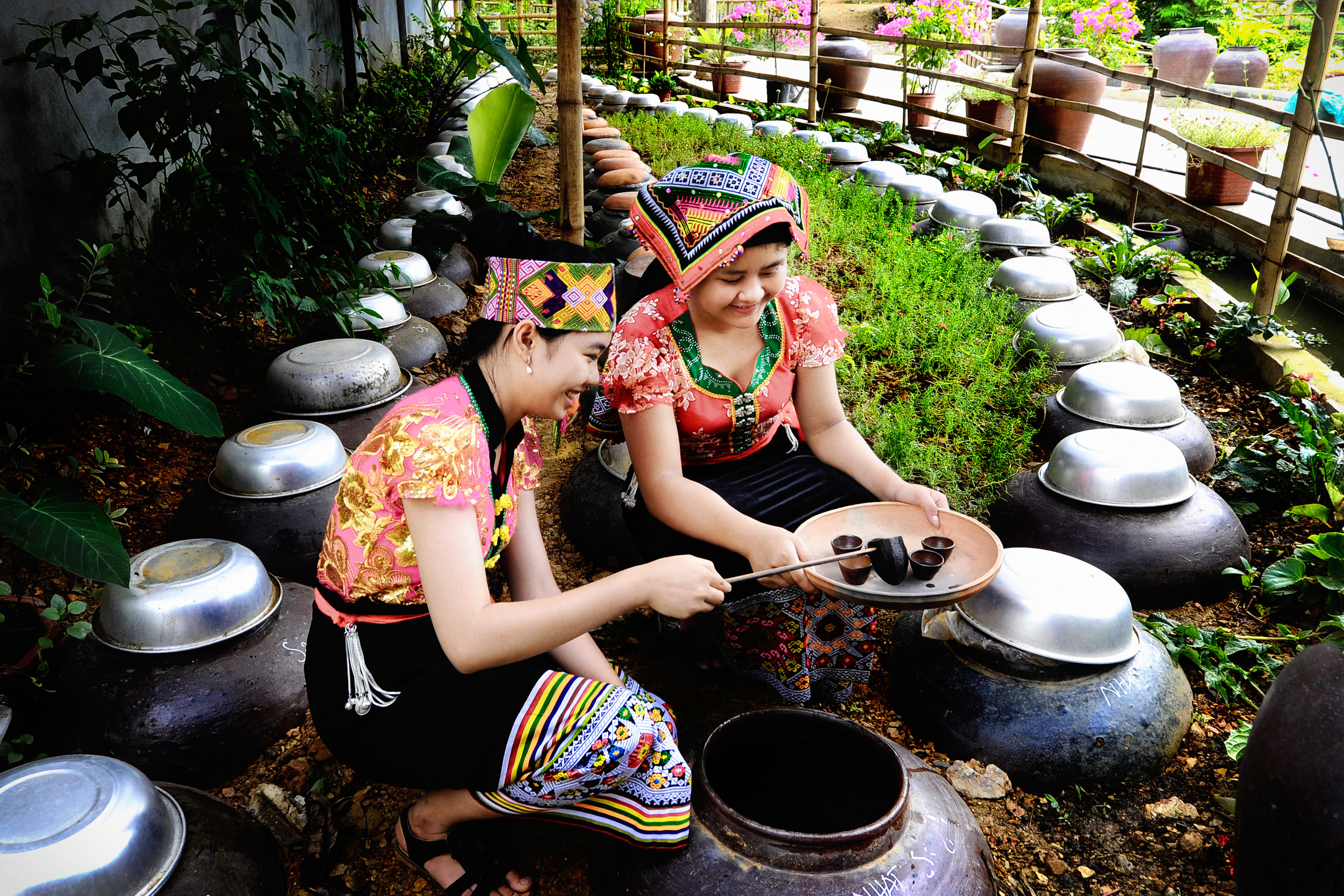 |
| Con Cuong leaf yeast wine specialty. Photo: Le Quang Dung |
However, up to now, Nghe An has no known agricultural and seafood export products. “Product promotion and introduction skills, unstable raw material sources, food safety issues, and difficulties in accessing capital to improve production lines... are “barriers” to increasing the competitiveness of local strengths such as grilled mackerel and fish sauce in the market.
Customers do not trust specialty products, especially regarding food safety issues. Competition from goods from other provinces and cities and imported goods (China, Thailand, Japan...) sold in large quantities, with beautiful designs and shapes, and cheap prices.
Meanwhile, customers are not able to recognize and differentiate between genuine and fake products and imported products. Another risk is that cultural identity is gradually being lost or distorted right in the specialties themselves. Therefore, local specialties are still "stuck" in a difficult position.
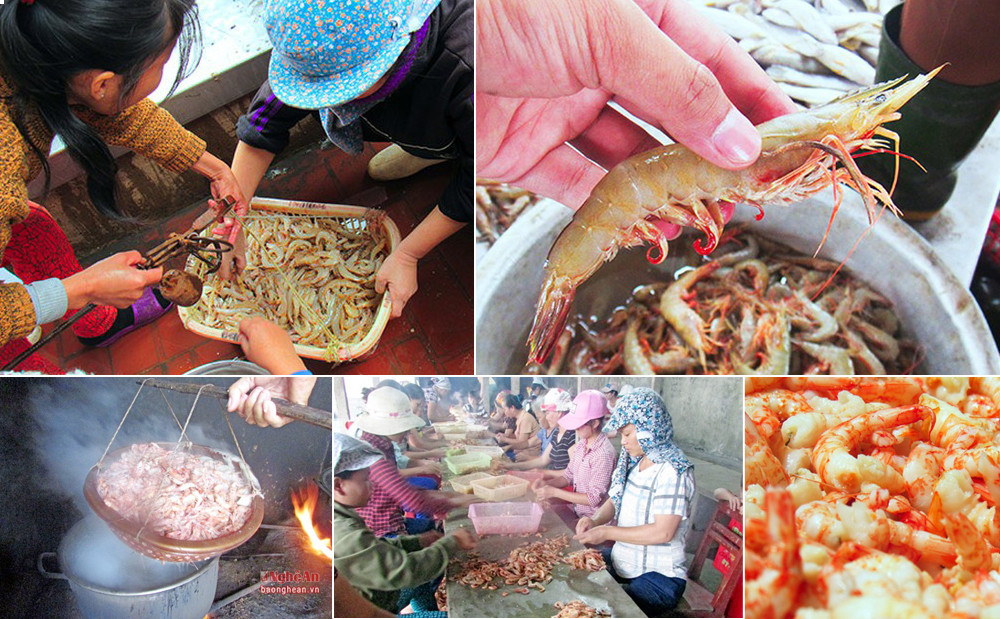 |
| Processing shrimp in Dien Chau. Photo archive |


